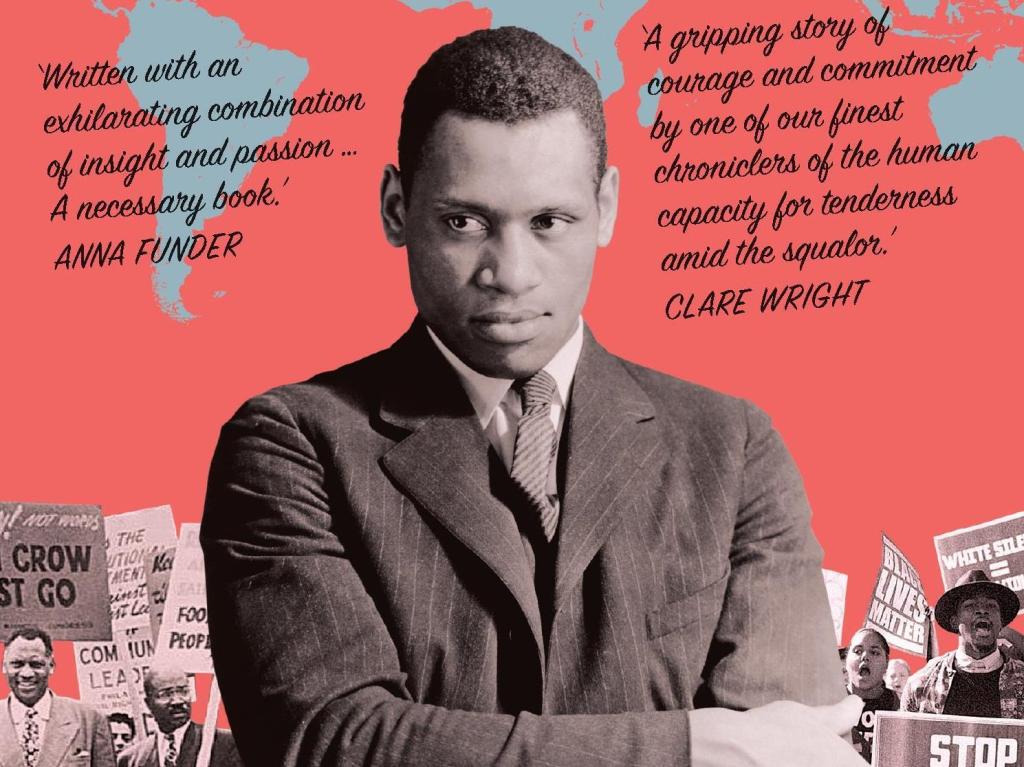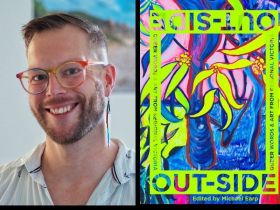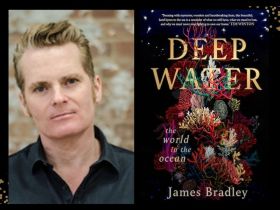The cover of Jeff Sparrow’s biography of Paul Robeson, No Way but This, is a melon coloured mosaic of the themes of the book. The man in question stands centre bottom, arms crossed, eyes to the left. Behind him is a world map, reflecting perhaps the journeys of our globetrotting biographer in search of his subject. To the left of the figure are black Jim Crow protesters of the last century, and to the right are modern Black Lives Matter protesters of this one, illustrating a major theme of the book: many of the issues that Robeson faced as a black artist in the middle of the 20th century have not been resolved. There is still plenty to protest.
You’ll be forgiven for not knowing who Paul Robeson is. In his day, the African American singer, actor, activist and sports hero was perhaps the most famous African American artist on the stage and screen, but today he’s faded into obscurity. “Paul Robeson… died decades ago,” Sparrow laments in his introduction, “and the memories of him have faded, so much do that a new generation barely knows his name.”
Sparrow travels the world to find traces of him, interviewing whoever he can to determine how the artist’s life and career has echoed its way into the present. First, he lands in North Carolina to meet the ancestor of a man who had owned Robeson’s father as a slave. From there he travels to Princeton, where Robeson was born, and then to New York, England, Wales, Spain and Russia, musing on his subject’s life as he traces Robeson’s footsteps through it.
Sparrow finds his stride as he gets going but, particularly in the beginning, the book is dizzying. It bounces between past to present, from the main narrative to Sparrow’s own thoughts, to facts, or quotes from interview subjects, and back again. Sparrow tends to wander down corridors of his own introspection that don’t seem to have enough relevance to justify their inclusion, but he usually finds his way out again. He also drops names and quotes like raisins, without fully constructing the narrative around them, so it’s important to pay attention, and maybe keep Google at the ready.
If you can keep up, though, there’s reward for the effort. Robeson led a fascinating life. He was an impressive virtuoso who forged a stunningly successful career in an era where success was made nigh on impossible for a man of his skin colour.
Sparrow is a Melbourne lefty, former editor of the progressive literary magazine Overland, writer and social activist, and the book is written through this lens. With No Way but This, Sparrow is exploring the history of the left, of racism and of social movements as much as he’s exploring Robeson’s life story.
It makes for a very interesting journey, full of rich rabbit holes and thoughtful tangents. Sparrow is a gentle, curious wanderer, and though his wanderings occasionally diverge off track, his curiosity successfully piques the readers’. His book lends valuable insight to a time and place that has not only fed into our own era, but in so many ways still reflects it.
No Way But This: in search of Paul Robeson
By Jeff Sparrow
Scribe Publications
Paperback, 304pp, RRP $32.99





